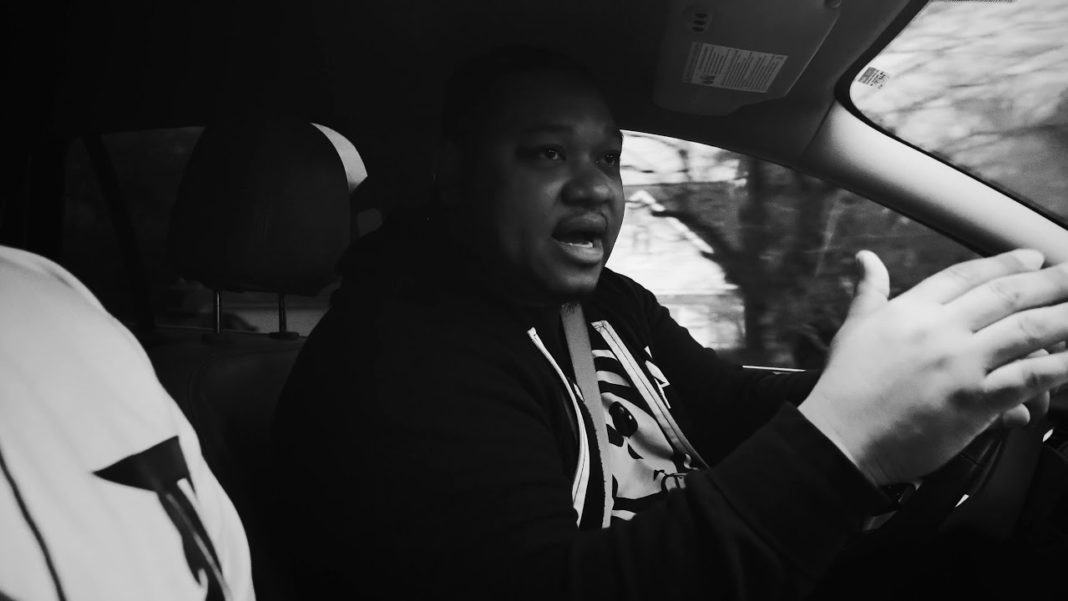All Things Work Together
The other day, I got in my car after coming out of my work site. I sat in my car a couple of minutes to gather myself before pulling off. As I was driving home, there were people driving as if they’d never taken a driver’s test… the norm.
Shortly, a pick-up truck pulls out in front of me and speeds up. Of course, I was irritated because… well, I was driving there. Anyhoo, for some reason, I felt the need to slow down and back off the truck a little, so I did. I heard a scraping noise and saw the truck slow all the way down. Apparently, the driver had run right into a plush, recliner-like chair that had fallen off of the vehicle in front of him. I instantly became grateful for the few extra minutes I took before pulling off and for the truck that pulled out in front of me.
See, both of those factors caused me to get to my destination a little later than planned, but they also helped to ensure my safety. And you know what? There wasn’t a consequence for my arriving past my scheduled time.
God’s Protection Includes Delays.
 What’s my point? Well, I’m glad you asked. Sometimes, it feels like it takes us longer to get started than it should. We take a few extra minutes before we “pull off” and we may get frustrated because our start time didn’t match everyone else’s.
What’s my point? Well, I’m glad you asked. Sometimes, it feels like it takes us longer to get started than it should. We take a few extra minutes before we “pull off” and we may get frustrated because our start time didn’t match everyone else’s.
And, just when we think we’ve caught up, it seems that someone else jumps out in front of us. I know the feeling. There have been times when nothing seemed worse than to “miss” my time because somebody got ahead of me.
But, you wanna know something else? Nobody can take what’s yours. I’m sure you’ve heard this before, but it’s true. That “truck” in front of you may seem to be going faster toward your prize than you are, but they don’t have what it takes to claim it. And, if it looks like what should be yours is in somebody else’s hands, then that one, my dear, does not belong to you.
Often, God will allow something or someone to pull out in front of you in order to block what may be falling that you cannot catch. My Chrysler couldn’t have handled hitting that falling chair the way the pick-up did. It may have damaged my bumper, hood, or worse. So for the many blows that come our way that we aren’t equipped or prepared to handle, God puts up a barricade of protection, whether we recognize it as such.
What God Has for You Cannot be Blocked.
It is so easy to get frustrated and lose focus because of what or who we see in front of us. But sometimes, we must learn to just back off and keep our eyes on the road ahead. Know that God will not allow what’s yours to be placed in the hands of someone else. I made it to my house right on time, I didn’t miss anything and the same will be for you when it is your time to arrive at your destination in life. Here are a few things to remember when we get “cut off” by life’s pick-up trucks:
- No matter what route you have planned, God’s plan is better. Trust that He won’t allow you to arrive one second past your appointed time. “For as the heavens are higher than the earth, so are my ways higher than your ways, and my thoughts than your thoughts.” Isaiah 55:9
- Know that God is protecting you. So often, we fail to look at what God may be keeping us from by not allowing things to happen as we wished they would. We always pray for Him to keep us from dangers seen and unseen… don’t forget the unseen things we are protected from. “For in the time of trouble he shall hide me in his pavilion: in the secret of his tabernacle shall he hide me; he shall set me up upon a rock.” Psalms 27:5
- God is always there to help you, even if you don’t recognize it. As I was driving, I didn’t realize that the urge I felt to slow down was God helping me. Sometimes, our lag is Him… not us. “God is our refuge and strength, a very present help in trouble.” Psalms 46:1
- Remember that you are not in a race against time. God created time, and if you are in His will, He will not let you miss any moments. “….. At the right time, I, the Lord, will make it happen.” Isaiah 60:22
So, What’s the Play Call?
Focus on obeying God and staying in His will. He will be sure that you get to your destination on time and receive everything destined for you.




